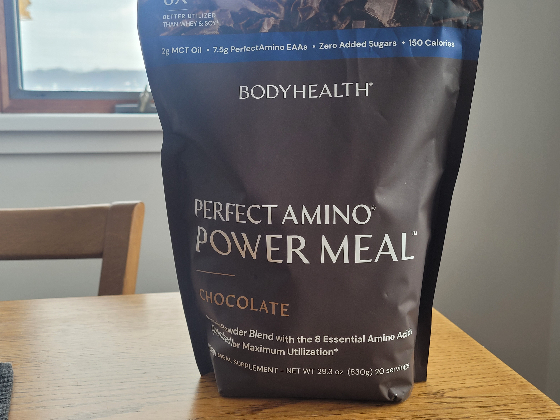What if an amino acid that is plentiful in many everyday foods could help treat challenging neurological conditions like epilepsy, schizophrenia and Alzheimer’s disease? Exciting new research suggests that L-serine, a naturally occurring amino acid, may offer major therapeutic benefits for the brain and central nervous system. But how could a single molecule found in foods we eat every day have such profound effects on our mental health?
As a precursor for vital neurotransmitters and nerve components, L-serine is believed to stabilize brain activity by inhibiting overexcitation. Supplementing with L-serine has been shown in emerging studies to balance brains prone to erratic signaling and hyperexcitability. The potential mechanisms and clinical applications are intriguing. Getting sufficient L-serine from dietary sources or supplements may assist in harmonizing disorganized electrical activity that underlies seizures, psychosis and cognitive decline.
In this article, we will explore the scientific studies illuminating L-serine’s actions in the brain and possible uses as a treatment. What are the key findings that shed light on this amino acid’s therapeutic promise? We’ll also discuss optimal daily intakes for mental wellness and identify seven tasty foods loaded with this nutritional powerhouse. Incorporating these L-serine-rich dietary sources can help you meet your body’s needs while potentially improving neurological health and safeguarding your brain over time.
The Brain-Boosting Power of the Amino Acid L-Serine
The human brain depends on a complex balance of neurotransmitters and electrical signaling for proper functioning. Disruptions to this delicate system manifest in seizures, psychiatric conditions, and neurodegenerative diseases like Alzheimer’s. In seeking solutions, researchers have zeroed in on an amino acid called L-serine as a promising treatment approach.
What is L-Serine and What Does it Do?
L-serine is an amino acid produced in the body that plays diverse roles in the central nervous system. It contributes to synthesizing neurotransmitters, nerve cell membrane components, proteins, and nucleotides.
L-serine also provides one-carbon units that enable key methylation reactions in the brain. Additionally, it serves as a precursor for other amino acids like glycine and cysteine that are vital for neural health.
Studies show L-serine functions as an inhibitory neurotransmitter, able to calm areas of the brain prone to overactivity. It’s this mechanism that makes L-serine so compelling as a therapy for neurological and mental health disorders characterized by brain hyper-excitability.
By controlling excessive electrical signaling, L-serine may prevent seizures in epilepsy, calm mania in psychiatric disorders, and confer neuroprotection in cognitive aging. Researchers are intensely studying optimal L-serine levels and supplementation strategies that may unlock its therapeutic potential.
L-Serine Benefits for Brain Health
A wealth of research demonstrates L-serine’s ability to stabilize the brain and nervous system via several mechanisms:
- As an inhibitory neurotransmitter, L-serine reduces nerve cell hyperexcitability
- It activates NMDA receptors critical for cognitive function through conversion to D-serine
- L-serine synthesizes nerve cell membrane components that support conductivity
- It enables production of vital neurotransmitters like glycine, dopamine and serotonin
- L-serine provides one-carbon units that allow methylation, a key process for neurological health
- It’s required for synthesis of phosphatidylserine, which improves memory and cognition
Treatment of Neurological & Psychiatric Conditions:
- Epilepsy – By calming excessive firing, L-serine may reduce seizure frequency and severity
- Schizophrenia – L-serine supplemetation may improve symptoms like hallucinations and mania
- Alzheimer’s Disease – L-serine may protect cognitive function and delay decline
- Insomnia – Clinical trials show L-serine improves sleep quality and duration
- ADHD – L-serine supplementation increased attention and reduced hyperactivity in children
L-serine is critical for the production of phospholipids needed to form the envelope of every cell in the body. It enables synthesis of cholesterol and fatty acids essential for building cell membranes.
Within the nervous system, cell membranes allow neurons to transmit electrical signals rapidly. L-serine maintains membrane integrity, keeping nerve cell communication flowing.
This amino acid also enables production of key neurotransmitters like glycine, taurine, dopamine and serotonin that modulate cognition, mood, motivation and learning.
Glycine acts as an inhibitory neurotransmitter blocking overactivity.
Taurine calms the nervous system and supports healthy brain aging.
Dopamine drives motivation and reward-seeking.
Serotonin regulates anxiety, happiness and mood.By ensuring adequate levels of these major messengers, L-serine keeps the complex chemistry of the brain balanced.
Research shows L-serine helps form phosphatidylserine – a lipid vital for brain cell membrane fluidity. Phosphatidylserine supplements are taken to sharpen memory, concentration and cognitive skills.
L-serine also contributes one-carbon units for methylation, a process that modifies DNA and histones. Proper methylation is essential for gene expression, neuromodulation and preventing age-related cognitive decline.
Plus, conversion of L-serine produces D-serine, an NMDA receptor activator. NMDA receptors are critical for learning, memory and synaptic plasticity.
With wide-ranging actions in the brain, it’s clear why optimal L-serine status supports neurological health.
How Much L-Serine Do You Need?
Studies show many people’s diets provide around 2.5 grams of L-serine per day. But is this adequate? Some experts argue significantly higher intakes may be optimal, especially as we age. Consider the long-lived villagers of Ogimi, Japan.
These remarkable people, who commonly live past 100 years old, consume up to 8 grams of L-serine daily from their traditional diets. While more research is needed, many experts recommend 500-1000 mg L-serine supplements for neurological health.
L-Serine Supplementation Can Ensure Adequate Status Of This Critical Amino Acid. Click Here To Check Out Micro Ingredients L-Serine Powder For Optimal Mental Health. Getting adequate B vitamins and folic acid enables the body to effectively produce and utilize L-serine, so be sure to check those out on micro ingredients as well!
7 L-Serine Food Sources to Boost Your Brain
- Seafood – Fish, shellfish, caviar, and seaweed offer high quality protein with L-serine.
- Soy products – Tofu, edamame, tempeh and soy protein isolates are packed with L-serine. Please be sure to buy organic when purchasing anything that contains soy, as the latter are typically grown with high amounts of pesticides and herbicides, which can damage the gut lining and cause other health issues.
- Eggs – A nutrition powerhouse, eggs contain lots of L-serine. Chickens that are given adequate light, space, and care produce the best eggs. Farm raised, free range is typically the best.
- Meat – Beef, lamb, chicken, turkey and pork supply L-serine. Choose grass-fed organic, and support your local farmer if possible.
- Dairy – Milk, yogurt, cheese and whey protein have this brain-healthy amino acid. High quality is important in this category also. Opt for r-BGH free (Recombinant bovine growth hormone) dairy products.
- Nuts and Seeds – Almonds, walnuts, pistachios, pumpkin seeds and hemp seeds provide plant-based L-serine. If you have the option, raw nuts and seeds are always better than roasted.
- Beans and Lentils – Kidney beans, lima beans, chickpeas and lentils offer plant-protein with L-serine. These are an easy addition to every meal, remember to rinse well.
The Bottom Line on L-Serine for Brain Health
Optimizing L-serine intake from foods or supplements holds exciting possibilities for improving neurological and psychiatric conditions. This amino acid influences myriad processes vital to brain function – from cell membrane formation to mood-regulating neurotransmitters.

I Recommend Checking Out Body Health Amino Acids which includes L-Serine Powder To Easily Add To Water, Juice, Or Smoothies, As It Is Much Better Absorbed By Your Body Than Pills Or Capsules
Click Here To Visit Their Website.
Discount code: Healthywildfree15
The human brain is incredibly complex, yet its proper functioning depends in part on adequate availability of the amino acid L-serine. Through regulating neurotransmitters, enabling production of nerve cell components, and supporting key processes like methylation, L-serine helps maintain the nervous system in homeostasis. Disruptions to these delicate processes manifest in devastating conditions like epilepsy, psychosis, and dementia.
Excitingly, a growing body of research shows targeted L-serine supplementation may help restore balance in brains prone to hyperexcitability and dysfunction. While more clinical trials are still needed, L-serine’s multifaceted mechanisms illustrate its potential for improving brain health and protecting cognition across the lifespan.
Optimizing L-serine levels through dietary sources or supplements, in combination with nutrients that support its metabolism like B vitamins and folate, may confer real benefits for those suffering from neurological and psychiatric conditions. It’s clear that appreciating the diverse importance of single nutrients like L-serine will be key as we continue deciphering the intricacies of the human brain.





